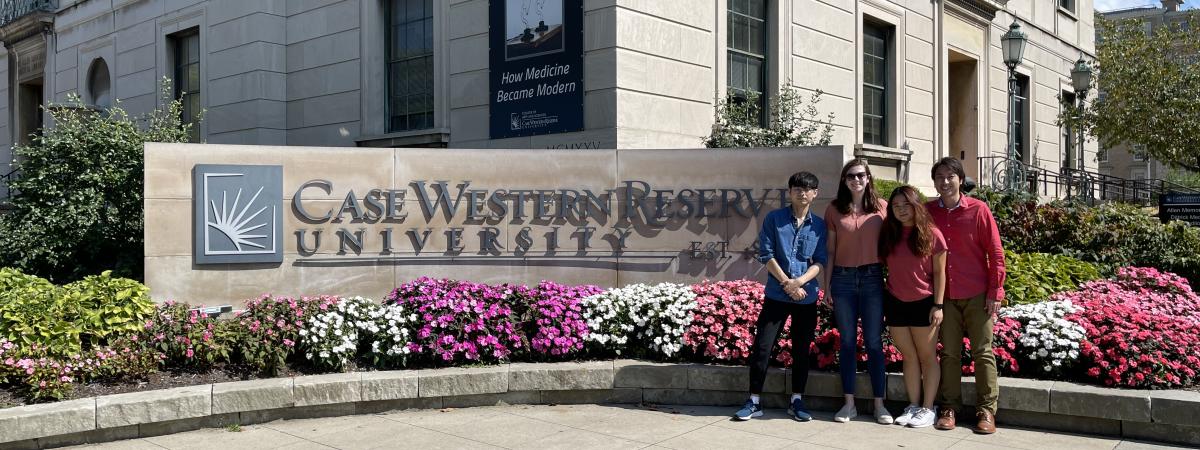Research
Metastatic melanoma ranks 5th in new cases among cancers and the 5-year overall survival rate was 22.5% in 2018 according to the Melanoma Research Alliance. Current treatments for metastatic melanoma focus on chemotherapy, radiotherapy, and immunotherapy, which provide substantial benefits for patients. However, these treatments are not successful long-term due to resistance to treatments and/or side effects. We determine the molecular mechanisms involved in the regulation of gene expression and signal transduction pathways in drug resistance to improve current treatment for metastatic melanoma. We further investigate the unknown functions of amino acid transporters in cancer metabolism. The main projects in our lab are as follows.
1) The epigenetic regulations in drug resistance.
Our preliminary data revealed that epigenetic regulation is involved in the resistance to one chemotherapeutic, CDK4/6 inhibitor. We determine how an altered epigenetic landscape contributes to the resistance to CDK4/6 inhibitor and develop the strategies that suppress the development of resistance.
2) Overcoming chemotherapy resistance by a combination with immunotherapy in melanoma.
Our preliminary data revealed that PD-1, an immune checkpoint protein, is involved in the resistance to one chemotherapeutic, CDK4/6 inhibitor. We investigate the efficacy of a combination of chemotherapy and immunotherapy using melanoma mouse models and human melanoma specimens.
3) The roles of amino acid transporters in cancer development and cancer metabolism.
We demonstrated that a dysregulated amino acid transporter contributes to the resistance to one chemotherapeutic, CDK4/6 inhibitor. However, the functions of amino acid transporters in cancer development and cancer metabolism remain unclear. We determine the roles of amino acid transporters in cancer development, chemotherapy resistance, and cancer metabolism using mouse models.
Publications
-
Justin Kim, Bryce Brunetti, Ayanesh Kumar, Ankit Mangla, Kord Honda and Akihiro Yoshida (2024) Inhibition of glutaminase elicits senolysis in therapy-induced senescent melanoma cells. Cell Death Dis. 18;15: 902.
-
Bryce Brunetti and Akihiro Yoshida (2023) Editorial: Altered epigenetic modification mediated dysregulated transcriptional networks in drug resistance. Front. Oncol. 13: 1196448.
-
Akihiro Yoshida *, Polly Phillips-Mason, Vincenzo Tarallo, Stefenie Avril, Christopher Koivisto, Gustavo Leone, J. Alan Diehl (2022) Non-phosphorylatable cyclin D1 mutant potentiates endometrial hyperplasia and drives carcinoma with Pten loss. Oncogene 41, 2187-2195. * Co-corresponding author
-
Akihiro Yoshida, Jaewoo Choi, Hong Ri Jin, Yan Li, Sagar Bajpai, Shuo Qie, and J. Alan Diehl (2021) Fbxl8 suppresses lymphoma growth and hematopoietic transformation through degradation of cyclin D3. Oncogene. 40: 292-306.
-
Akihiro Yoshida*, Yiwen Bu, Shuo Qie, John Wrangle, E. Ramsay Camp, E. Starr Hazard, Gary T. Hardiman, Renée de Leeuw, Karen E. Knudsen, and J. Alan Diehl (2019) SLC36A1-mTORC1 signaling drives acquired resistance to CDK4/6 inhibitors. Sci Adv. 5: eaax6352 * Co-corresponding author
-
Shuo Qie, Akihiro Yoshida, Stuart Parnham, Gyda C. Beeson, Craig C. Beeson, Adam J. Bass, Kwok-Kin Wong, Anil K. Rustgi, and J. Alan Diehl (2019) Targeting Glutamine-addiction and Overcoming CDK4/6 Inhibitor Resistance in Human Esophageal Squamous Cell Carcinoma. Nat Commun. 10: 1296.
-
Yiwen Bu, Akihiro Yoshida, Nilesh Chitnis, Brian Altman, Amanda Taylor, Victoria Gennaro, Kent E Armeson, Steven McMahon, Chi Van Dang, Davide Ruggero, Constantinos Koumenis, Serge Y. Fuchs, and J. Alan Diehl (2018). A PERK-miR-211 axis suppresses circadian regulators and protein synthesis to promote cancer cell survival. Nat. Cell. Biol. 20: 104-115.
-
Akihiro Yoshida, Eric K. Lee, and J. Alan Diehl (2016). Induction of Therapeutic Senescence in Vemurafenib-Resistant Melanoma by Extended Inhibition of CDK4/6. Cancer Res. 76: 2990-3002.
-
Akihiro Yoshida and J. Alan Diehl (2015). CDK4/6 inhibitor: from quiescence to senescence. Oncoscience 2: 896-897
-
Akihiro Yoshida, Jun-ya Kato, Ikuko Nakamae, and Noriko Yoneda-Kato (2013). COP1 targets C/EBPα for degradation and induces acute myeloid leukemia via Trib1. Blood 122: 1750-1760.
-
Akihiro Yoshida, Noriko Yoneda-Kato, and Jun-ya Kato (2013). CSN5 specifically interacts with CDK2 and controls senescence in a cytoplasmic cyclin E-mediated manner. Sci Rep 3: 1054.
-
Akihiro Yoshida, Noriko Yoneda-Kato, Martina Panattoni, Ruggero Pardi, and Jun-ya Kato (2010). CSN5/Jab1 controls multiple events in the mammalian cell cycle. FEBS Lett. 584: 4545-4552.


